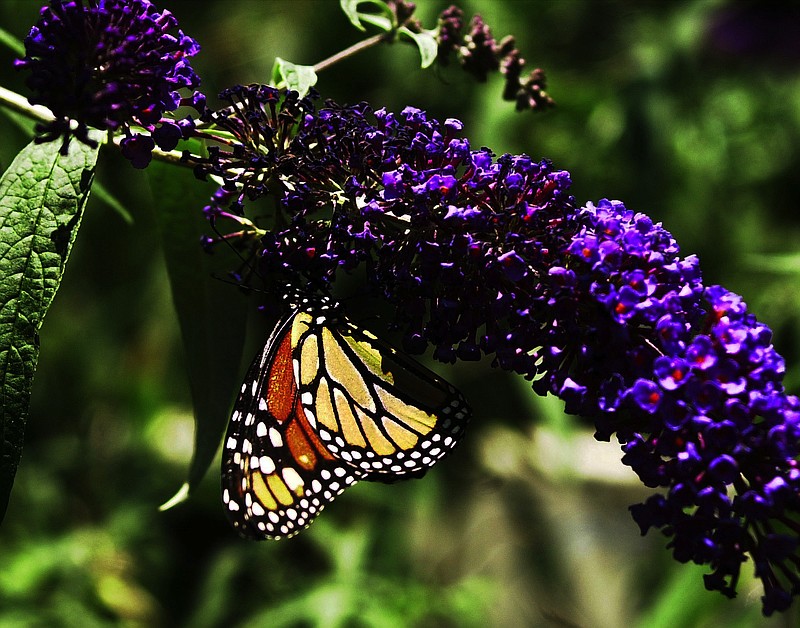How many bumblebees have you seen this spring?
How many lightning bugs?
Remember the days when the white clover in your lawn was abuzz with honey bees? When on evenings after spring rains (like we had last week) you couldn't drive on low-lying roads without running over scores of hopping baby frogs and toads? When was the last time you saw more than the rare single wee hopper?
Outside of something like the Tennessee Aquarium, have you ever seen a monarch butterfly? A fringeless orchid? A gray bat? A Tennessee River sturgeon?
Those insects and animals may seem inconsequential, but they won't be when our fruit trees and vegetables don't get pollinated, and thus don't make apples and zucchinis. Fewer frogs and bats won't seem like a big deal until we realize the growth of mosquito-borne diseases we face.
"The health of ecosystems on which we and all other species depend is deteriorating more rapidly than ever. We are eroding the very foundations of our economies, livelihoods, food security, health and quality of life worldwide," according to a prepared statement from Robert Watson, chairman of the Intergovernmental Science-Policy Platform on Biodiversity and Ecosystem Services.
We used to learn in grammar and middle school about the web of life. These days, part of the fancy science terminology for that web is biodiversity - defined as the variety of life in the world or in a particular habitat or ecosystem.
This month, the overarching message of a new and landmark United Nations study is that the earth's biodiversity is declining faster than at any time in human history, and about one million species now face extinction - some within decades - due largely to human activity.
"Ecosystems, species, wild populations, local varieties and breeds of domesticated plants and animals are shrinking, deteriorating or vanishing. The essential, interconnected web of life on Earth is getting smaller and increasingly frayed," said professor Josef Settele, who co-chaired the assessment. He, too, said the decline is human caused, but it also "constitutes a direct threat to human well-being."
Among the report's findings:
> More than 40% of amphibian species, almost 33% of reef-forming corals and more than a third of all marine mammals are threatened.
> At least 680 vertebrate species had been driven to extinction since the 16th century.
> More than 9% of all domesticated breeds of mammals used for food and agriculture had become extinct by 2016.
But the report is not just about gloom and doom, according to the 40-page "Summary for Policy Makers" that was released on May 6 in Paris. The full report, to be released later this year, is expected to exceed 1,500 pages and will include suggested policy and hopeful initiatives around the world.
Hopeful initiatives can be as large as the one underway by National Geographic Society and the Wyss Campaign for Nature, which are working together to inspire the protection of 30 percent of the planet by 2030. Or the hope may be as local as something like Chattanooga Mayor Andy Berke's formation of a "resiliency council" of mayors and commissioners in Southeast Tennessee and Northwest Georgia. That council expects to formulate plans and policies to make cities more resilient to climate change.
But make no mistake, saving species will take more than just hope. The United Nations' global report, based on a review of about 15,000 scientific and government sources and compiled by 145 expert authors from 50 countries, makes it clear that transformative change - assisted by government policy and law changes - is needed.
The report, which is the first comprehensive look at the planet's biodiversity in 15 years, ranks the primary drivers of species decline as land conversion, including deforestation; overfishing; bush meat hunting and poaching; climate change; pollution; and invasive alien species.
"The main message of our report is that transformative change is urgently needed. There are no other options" David Obura, a marine biologist working to save corals at the Coastal Oceans Research and Development – Indian Ocean in Mombasa, Kenya, told the National Geographic. "We need to change what we value: nature, ecosystems, social equity, not growing the GDP."
Conversely, we would argue that following his advice is, over time, the only way to grow the GDP.
